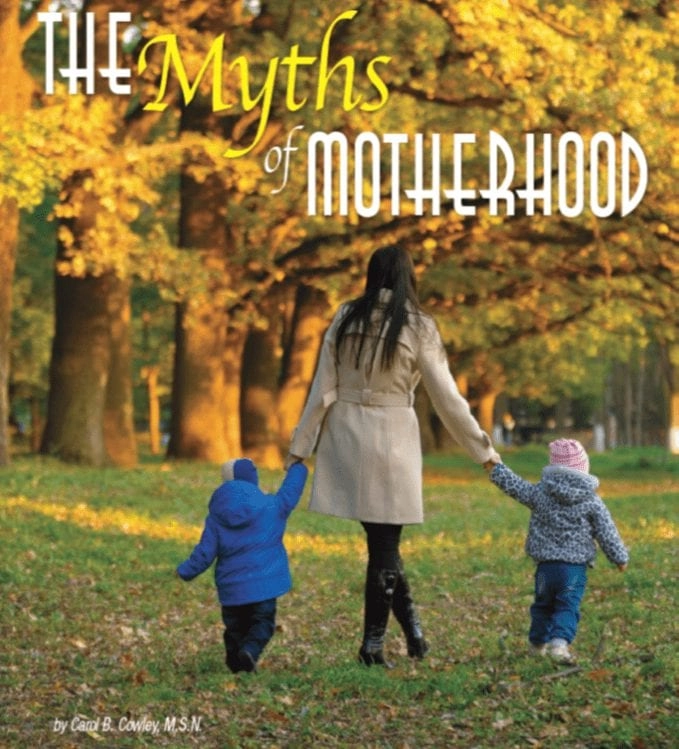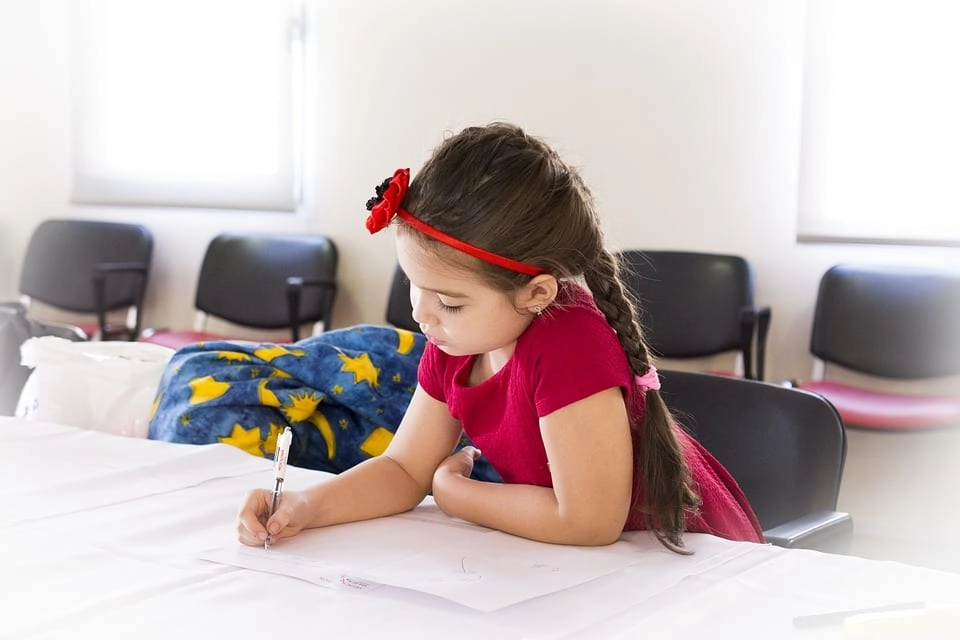Like many new mothers of twins, I managed to get through that first year by sheer willpower putting one foot in front of the other, changing diaper after diaper, almost as if in a trance. However, by the time our twins were 15 months old, I was feeling increasingly overwhelmed and hopeless about my ability to continue juggling the many spheres of my life that felt so out of my control: two active toddlers, a demanding job, worries about daycare and all those never-ending chores. I was afraid to slow down and ashamed to ask for help.
But continuing to live my life this way began to exact a toll on my physical and emotional health. I got pneumonia when the boys were one year old, and I had a fever that continued for more than a year. Then I began to awaken at three o’clock every morning, unable to get back to sleep. When the alarm went off, I would lie in bed exhausted, feeling a sense of despair and dread, wondering how I could face another day.
That dark mood began to permeate every aspect of my life. At one point, I remember crying almost daily during my long commute to pick the boys up from daycare. I waited, hoping to “snap out of it.” Yet the sadness continued.
Finally, I summoned the courage to ask my doctor for a referral to a therapist. Asking for help and admitting that I suffered from depression represented a giant step for me. With the help of a gifted therapist and a course of antidepressant medication, I began the process of emerging from my depression. This involved making some logistical changes in our daily routine in order to reduce stress, as well as trying to understand and change the negative “self-talk” that fueled my depression.
Our boys are now almost 6 and life seems much easier than when they were babies. In retrospect, I can see that there were several core “myths” that contributed to my depression and robbed me of my ability to enjoy those early years with our new family. I share these core myths along with the realities, as I now see them, with the hope that other new mothers of multiples might read them and discover ways to be gentler on their own self.
MYTH #1
You should always feel lucky and blessed to be the mother of twins. Our culture still romanticizes motherhood, perpetuating the myth that being home with infants or young children is always joyful and easier than being out in the “real” world. Therefore, being home with two babies as once must be “twice the joy”. How many times have strangers stopped you on the street and confessed “I’ve always wanted to have twins. I think it would be so much fun!” The message I got from society was that I should feel joyous, but in those initial months at home with our babies, I felt mainly exhausted and overwhelmed. I concluded, therefore, that I must be a bad (or at least, inadequate) mother. I could no longer see or appreciate the creative ways I was managing to love and care for two babies at once.
REALITY
You can love your twins unconditionally and feel blessed to have two beautiful babies. However, you do not always have to love trying to meet the physical and emotional needs of two babies simultaneously, nor always rejoice over the way your life has so drastically changed. Caring for two babies at once is one of the hardest things you may ever do in your life. And no one else, unless they have multiples of their own, can understand what it really feels like. Any reasonable person would at times feel exhausted, overwhelmed, and vulnerable to depression when faced with a relentless stream of diapers, feedings, and months of sleep deprivation. Expect to feel a wide spectrum of emotions once your twins arrive. You are not alone in your experience: Studies have found significantly high rates of chronic exhaustion among mothers of young twins (76% versus only 8% among mothers of singletons) and rates of depression ranging from 30% to 50% (three to five times the rates among mothers of singletons). We typically think of postpartum depression (PPD) as having its onset within three months of childbirth. However, experts on PPD now emphasize that women are at increased risk for depression for up to three years after giving birth.
MYTH #2
Taking time for yourself is selfish and means you’re not taking care of your family. One of the most difficult things for mothers of multiples is to take time for ourselves. Especially when our babies are little, they have so many physical and emotional needs that require our attention. In my case, I had a supportive and involved husband who did his best to give me some breaks. However, the guilt and ambivalence that I experienced when I did take time away from our babies made the psychological costs of nurturing myself too high.
REALITY
“You cannot give from an empty cup.” And you can’t replenish your cup unless you take a break. Taking some time for yourself (to simply take a walk or have coffee with a friend) is important, not only for your well-being but for your babies as well. A recent study of mothers of very young twins found that mothers who asked for help and were less exhausted were much more sensitive and responsible for their babies’ individual needs. Of course, the reality is that any dedicated “Mommy Time” is extremely limited and therefore, precious. Protect it fiercely and spend it only on activities that you truly enjoy or with people who delight and nurture you.
MYTH #3
Each individual decision I make about how I raise my twins is critically important to their future well-being. Making the wrong decision could be devastating. As mothers, we are faced with a never-ending stream of choices regarding the care of our children: Breastfeed or bottle feed? Return to work or stay home? The list seems endless. Unless we are careful, we can begin to expend too much energy worrying about making the “right decision,” losing sight of the bigger picture with respect to the good jobs we do as mothers.
REALITY
The decisions you make about caring for your twins deserve careful consideration. But it is the sum of all your decisions and the daily interactions with your children that matter the most. Trust yourself. No one knows your twins better than you do. If it turns out that a decision was not the best one, in the long run, you will know that and will have even more information under your belt to draw upon the next time you’re faced with a difficult decision.
I know now that the love I have for my twins is like an iceberg. The tiny, exposed tip of the iceberg represents the day-to-day decisions: one crib or two, same classroom or separate? But those decisions are supported by the unseen, massive body of the iceberg, comprised of all the loving interactions, attention, and care I have given our boys. I know that it is the powerful base of the iceberg that shapes and nurtures them in the long run.
Raising twins is a unique challenge and it is hard work. Don’t make your job even harder by letting these or other myths about motherhood rob you of your ability to see just how creative and capable you are. While some days will feel harder than others, there should also be some days when you can find ways to nurture yourself and take pleasure in the things you do.
If these good days begin to disappear, especially if you notice other symptoms of clinical depression such as difficulty sleeping or eating, feeling sad, worthless, or hopeless about the future, don’t hesitate to seek professional help. Asking for support during times of stress is not a sign of weakness, but rather a testament to how much you value and treasure your children, your family, and yourself.








There is 1 comment
I appreciate your perspective, but as a mother of fraternal 3 year old twin boys working on a master’s degree, with a husband and solid source of income, I feel like I am whining if I discuss my “problems.” I feel like the therapist has people with “real” problems he could be helping instead of listening to my pity party. I always opt to “get through it,” and “suck it up.” And I have continued to move from one situation to the next without enjoying much of anything but preserving through it all.